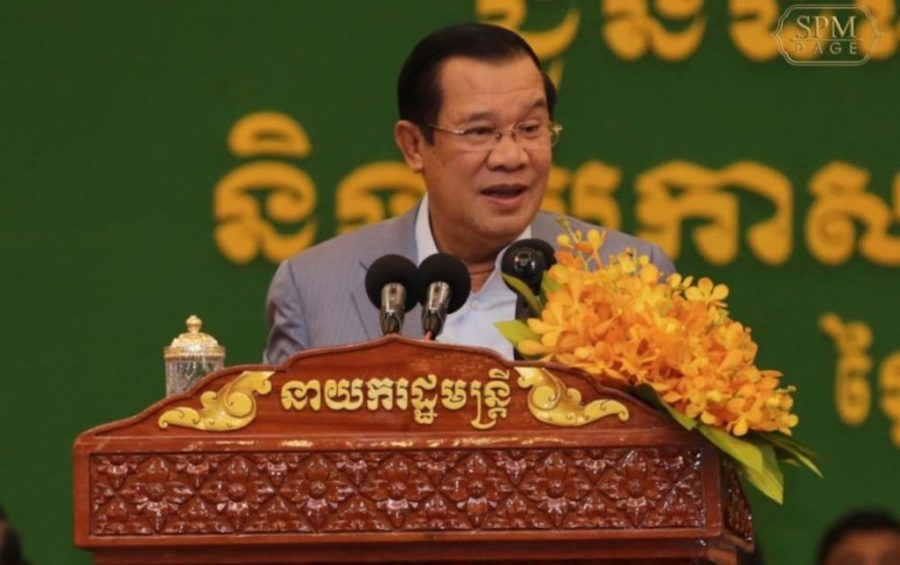Cambodia has 30 tons of gold stashed in Switzerland, London and Phnom Penh; $15 billion in foreign reserves; and $4 billion more cash in hand — so it doesn’t need to be beholden to foreign aid, Prime Minister Hun Sen said on Wednesday.
Speaking at a graduation ceremony at Phnom Penh’s Koh Pich island, Hun Sen again brushed off the pressures the country faces as the E.U. and U.S. consider suspending duty-free trade agreements with Cambodia over political and human rights concerns.
Previously, he has said government economic reforms would counteract the effects of potential sanctions, and asserted his refusal to bow to outside pressure. On Wednesday, he said Cambodia had enough assets in reserve to withstand any rocky transition.
Cambodia had 12 tons of “heritage gold” handed back to the country and deposited in Switzerland, while “15 tons of gold was bought by the National Bank and kept in London,” Hun Sen told the graduating students.
“Another 3 tons of gold was bought by the National Bank and is kept in Phnom Penh. So we have 30 tons, but that is just a small amount,” he said.
According to gold prices listed on Reuters, 30 tons of gold is worth about $1.5 billion.
Hun Sen added that the country’s foreign exchange reserves totaled about $15 billion, plus “we currently have nearly $4 billion for daily expenses.”
The Asian Development Bank listed Cambodia’s growing gross international reserves last year at about $10 billion.
Hun Sen also claimed that the country currently made about $500 million a month and spent just $300 million, so it was running at a surplus.
It was unclear whether he meant government revenues and expenditures, which the ADB estimated at about $360 million and $470 million a month last year, respectively, amounting to a deficit; or the country’s tax intake and governmental budget, which the Finance Ministry put at about $180 million and $500 million a month last year. The national budget for 2019 was set about 13 percent higher than last year.
The government’s tax base has grown rapidly in recent years thanks to reforms to reduce corruption, and Hun Sen said this year’s intake was on track to exceed projections by $800 million — not to mention hopes that the country would extract its first drops of oil this year.
Yong Kim Eng, president of community development NGO People Center for Development and Peace, said the government’s revenue was separate from the potential job losses that could affect Cambodians if trade preferences were lost and exports declined.
“Even though we have that amount of gold, the strong base for trade [and] Cambodia’s national economic growth [is] the European Union’s EBA and the U.S.’s GSP,” Kim Eng said, referring to two trade deals, Everything But Arms and the Generalized System of Preferences.
“Cambodia needs to try hard to protect [them] for the long-term future of Cambodia,” he said.
In August, the Garment Manufacturers Association in Cambodia raised concerns about the impact a loss of the EBA could have on 750,000 workers in the sector — by far Cambodia’s biggest source of exports.
Following a six-month review period, the E.U.’s decision on the EBA is due in February.
The E.U. embarked on its review of the trade scheme following the dissolution of the main opposition CNRP in 2017 and a subsequent national election swept by the ruling CPP.
Interior Minister Sar Kheng visited Germany over the past week to express Cambodia’s willingness to make efforts to retain the EBA.
(Translated and edited from the original article on VOD Khmer)













